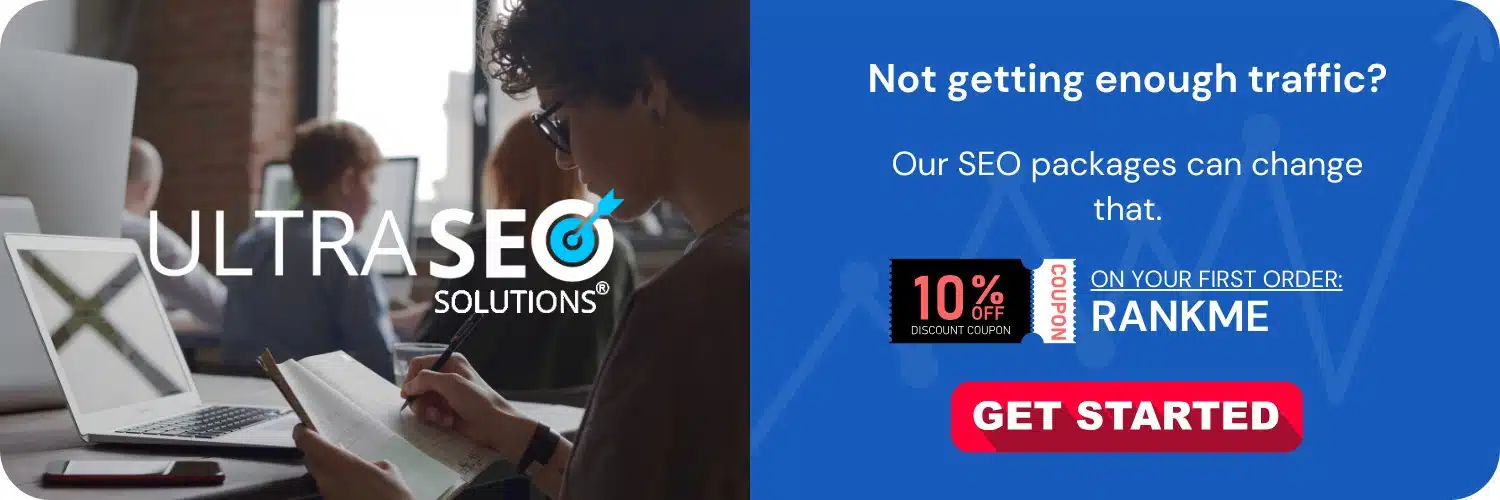
When crafting SEO-friendly e-commerce product pages, key considerations include optimizing title tags, meta descriptions, product descriptions, URL structure, image alt tags, satisfying user search intent, leveraging structured data, improving page load speed, acquiring high-quality backlinks, and ensuring mobile-friendliness. These elements are critical for enhancing visibility, attracting potential customers, and boosting conversion rates.
Optimizing Title Tags and Meta Descriptions
Title tags and meta descriptions are fundamental components of SEO. These elements not only impact search rankings but also influence whether a user decides to click on your product page.
Title Tags
For title tags:
- Keep your titles under 60 characters to ensure they display properly in search results.
- Include the primary keyword for the product, ideally at the beginning of the title.
- Make it compelling and informative to encourage clicks – consider how your product solves a problem or fulfills a need.
- Avoid keyword stuffing – it can harm your search rankings and turn users off.
Meta Descriptions
Although not a direct ranking factor, meta descriptions can improve click-through rates:
- Write a concise summary of the product page (about 155 characters) that includes primary and relevant secondary keywords.
- Incorporate a call to action, such as “Shop now,” “Learn more,” or “Get yours today” to entice users.
- Ensure each meta description is unique to avoid duplicate content issues.
Writing Compelling Product Descriptions
Your product descriptions do much more than inform; they sell. SEO-wise, they provide content for search engines to index:
- Always include primary keywords naturally to help search engines understand products.
- Use secondary keywords and synonyms to cover related search terms.
- Keep the language natural and user-friendly; avoid jargon unless your target audience expects it.
- Focus on the benefits and the problems that the product solves for the customer.
URL Structure
A clean and keyword-rich URL structure not only improves user experience but also search engine rankings:
- Keep URLs short, descriptive, and easy to read.
- Use hyphens (-) instead of underscores (_) to separate words.
- Include the primary keyword for the product.
- Avoid using unnecessary parameters or dynamic strings.
- Ensure URL structure is consistent across the website for ease of navigation and a cohesive user experience.
Optimizing Images and Videos
Images and videos can significantly impact your SEO efforts:
Image Optimization
- Use high-quality images but compress them to improve page load speed.
- Include descriptive file names with keywords, such as “red-cotton-tshirt.jpg” instead of “IMG_001.jpg”.
- Add alt text to every image using relevant keywords, which helps visually impaired users and search engines understand the image content.
Video Optimization
- Consider hosting videos on platforms like YouTube to ease server load and benefit from search traffic on those platforms.
- Add descriptive titles and tags to your videos.
- Include a transcript for improved accessibility and indexing.
Answering User Search Intent
Understanding and satisfying user search intent is central to SEO:
- Anticipate what your target customers are looking for and tailor your product pages to meet those needs.
- Consider the stage of the buyer’s journey – are they ready to purchase or still gathering information?
- Provide comprehensive information such as product specs, how-to guides, or use cases to cater to various search intents.
Leveraging Structured Data
Structured data can significantly boost your product page’s visibility:
- Use schema markup to provide search engines with detailed product information like price, availability, and reviews.
- This can enable rich snippets, making your product stand out in search results.
- Test your structured data implementation using Google’s Rich Results Test.
Improving Page Load Speed
Faster page load times improve user experience and can contribute to higher search rankings:
- Optimize image sizes and consider next-gen formats like WebP.
- Utilize browser caching and a CDN to reduce server load and speed up content delivery.
- Minimize the use of heavy JavaScript and CSS files.
Acquiring High-Quality Backlinks
Backlinks are crucial for SEO, as they signal trustworthiness to search engines:
- Reach out to bloggers and influencers to review your products.
- Engage in guest posting on reputable sites related to your niche.
- Participate in relevant forums and communities, providing valuable insights and subtly linking back to your product pages when appropriate.
Ensuring Mobile-Friendliness
With the rise of mobile shopping, your e-commerce product pages must be mobile-friendly:
- Use responsive design to ensure your site looks good on any device.
- Keep buttons and links easily clickable, and navigation simple for touchscreens.
- Consider the impact of pop-ups and other elements on the mobile user experience.
Local SEO for E-commerce
If you have a physical store or a specific service area, local SEO can drive local traffic:
- Claim and optimize your Google My Business listing.
- Encourage customers to leave reviews on your GMB and other review platforms.
- Make sure your contact information is consistent across the web.
Monitoring and Adjusting
SEO is not a one-time setup; it requires ongoing refinement:
- Regularly review your product page performance using tools like Google Analytics and Search Console.
- Keep an eye on competitors and stay informed on industry trends.
- Update your content and strategies accordingly to maintain and improve your rankings over time.
Finishing Thoughts
SEO for e-commerce product pages involves a multifaceted approach, focusing on both the technical and content aspects of your site. By prioritizing these considerations, such as optimizing title tags and meta descriptions, writing persuasive product descriptions, structuring URLs correctly, and ensuring fast page load times, you can improve your pages’ visibility and desirability in search results. Additionally, by leveraging backlinks and structured data, and ensuring mobile-friendliness, you can build a robust SEO foundation that supports your e-commerce business’s growth. Monitor, adapt, and refine your SEO tactics regularly to stay ahead of the competition and remain aligned with Google’s evolving algorithms and best practices. Remember, SEO is an ongoing journey, not a destination, and your persistence and attention to detail will pay off in the form of increased traffic and sales.
Frequently Asked Questions
What is SEO and why is it important for e-commerce product pages?
SEO, or Search Engine Optimization, refers to the practice of improving a website to increase its visibility when people search for products or services related to your business in search engines like Google. For e-commerce product pages, effective SEO ensures that your products appear prominently in search engine results, increasing the chances of attracting potential customers to your site.
How can I optimize my product titles for better SEO?
To optimize your product titles for SEO, include relevant keywords that potential customers might use when searching for products like yours. Make sure the title is descriptive and provides clear information about the product. Keep it concise, but ensure it highlights the unique selling points. Avoid keyword stuffing — the practice of loading a webpage with keywords in an attempt to manipulate a site’s ranking.
What role do product descriptions play in SEO?
Product descriptions play a crucial role in SEO because they provide search engines with context about the product’s features, benefits, and uses, which helps in matching search queries with your product pages. Well-crafted descriptions using relevant keywords can boost your page’s search rankings and attract more relevant traffic.
Should I include customer reviews on my product pages?
Yes, including customer reviews on your product pages can have a positive impact on SEO. Reviews generate unique content for your product pages, which search engines value. They also contain long-tail keywords and contribute to establishing trust and authority for your products.
What is the importance of alt text in e-commerce SEO?
Alt text, or alternative text, describes the appearance and function of an image on a page. It’s essential for SEO as it helps search engines understand the content of the image and how it relates to your product. This is especially important because search engines cannot ‘see’ images, but they can read alt text. Alt text also improves accessibility for people using screen readers.
How does site speed affect e-commerce SEO?
Site speed is a critical factor for e-commerce SEO, as search engines prioritize websites that load quickly. A slow-loading site can lead to higher bounce rates, with users leaving before the page has fully loaded. This can negatively impact your search engine rankings. Additionally, a fast site provides a better user experience, encouraging visitors to stay longer and view more pages.
What is the role of mobile optimization in e-commerce SEO?
With the increasing use of smartphones for online shopping, mobile optimization has become vital for e-commerce SEO. A mobile-friendly website enhances the shopping experience for mobile users and is favored by search engines, often leading to higher rankings in mobile search results.
What are structured data and rich snippets, and how do they influence SEO?
Structured data is a standardized format to provide information about a page and classify the page content. Rich snippets are the visual results that users see on the search engine results page that include additional information like ratings and price. Utilizing structured data and rich snippets helps search engines understand the content of your e-commerce product pages better, contributing to more prominent and informative displays in search results, which can improve click-through rates.
Is linking strategy important for e-commerce product pages?
Yes, an effective linking strategy is important for SEO for e-commerce product pages. Both internal linking (linking to other pages within your site) and external linking (getting other reputable sites to link to your pages) can help to establish the relevance and authority of your site. This can lead to higher rankings for your product pages in search engine results.
How often should I audit my e-commerce product pages for SEO?
Regular audits of your e-commerce product pages for SEO are advisable to maintain and improve their performance in search rankings. It is good practice to perform an audit whenever there is a significant change to your inventory, or at least every quarter, to ensure all product pages are optimized and identify areas for improvement.






